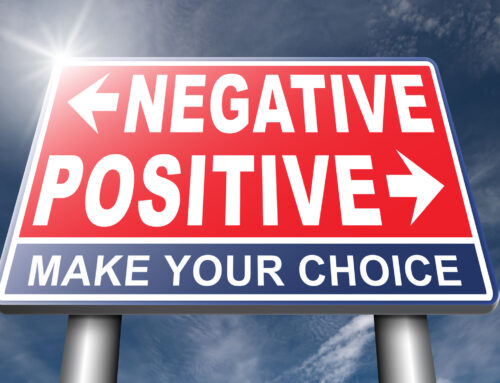11 Reasons Why Dating Coaches Believe You’re Self-Sabotaging Your Chances At Love (Plus How To Fix It Now)
Do you feel frustrated that a great connection fizzles out before reaching exclusivity? Are you stuck finding fault with the people you date, deselecting them for superficial reasons, and not letting anyone get too close to you? These could be signs that you’re self-sabotaging your chances for love.
Understanding why this keeps happening, and what to do about it, are the keys to breaking the pattern of self-sabotaging relationships and creating the long-lasting love you desire.
Self-sabotage is a tricky issue because ultimately it’s you that’s creating the problem, even when it appears to be the situation you’re stuck in, or the illusion that the issue is the other person.
Self-sabotaging relationships don’t just blow up on their own — you keep lighting the match (even though you may wish for it to work out).
If you’re stuck in a cycle of self-sabotaging relationships you likely know on some level that you’re the cause, yet you feel powerless to stop it.
When you understand why self-sabotage occurs, you can make changes in your approach to love. Knowing you’re stuck in self-sabotage syndrome makes all the difference in whether you can break the cycle and finally find long-lasting love with an ideal partner
If sharing your life with someone special is important to you, take a few minutes to go through this self-assessment and discover if you’re the source of your relationship troubles (and what to do about it if you are):
11 Reasons Why You’re Self-Sabotaging Your Chances At Love
-
You Have A Fear Of Intimacy
Allowing yourself to show up fully and be seen by your date can feel scary. What if they reject you or you get hurt again? It’s easy to believe that it’s just simpler to keep people at a distance so you can keep your heart safe.
Emotional intimacy is the glue that holds relationships together. If you can’t share your thoughts and feelings then your relationships will always be superficial without truly creating a bond. Withholding your inner life from a partner is a common source of self-sabotage.
-
You Have An Inner Conflict
Are you afraid that when you commit to someone long-term you’ll lose your freedom and independence? Do you believe you have to sacrifice your needs for the relationship to last?
When you have two beliefs or desires that seem to be the opposite of each other (like freedom vs. love), you’re stuck in an inner conflict. This internal conflict will self-sabotage any potential relationship because the struggle to get these opposing needs met creates a stalemate. You feel stuck and unable to resolve the irreconcilable desires inside of you.
The most difficult part of having an inner conflict is feeling stuck and ambivalent or even cynical about love. This rejection of the desire for love fools you into believing that love just isn’t meant to be for you.
-
You Are Out Of Rapport With Yourself
This is similar to an inner conflict but comes from being disconnected from your inner desires altogether. Being in rapport with yourself is knowing who you are and what’s important to you along with having empathy for yourself. When you’re out of rapport with yourself you aren’t connected to your feeling state or your inner dialogue.
A lack of rapport with yourself causes self-sabotage because you’re unaware of the actual motivation for your behavior. Being disconnected from your needs makes you unable to articulate your needs to a partner.
This lack of awareness causes you to act out in ways that are detrimental to your relationship, like blaming your partner for your upset, blowing off an important event, or even worse being unable to take responsibility for your part of a disagreement.
-
You Suffer From Low Self-Esteem, Lack Of Confidence, Or Insecurity
Projecting your insecurities and lack of belief in yourself onto your partner leads to relationship self-sabotage. Most people project some of their internal beliefs onto the world around them. Projecting your insecurities onto your romantic partner can cause you to feel overly jealous, question your partner’s affection for you, or believe that you’re inherently flawed in a way that makes you unlovable.
Whether you have low self-esteem, lack confidence, or feel insecure about yourself, your partner is not the cause, and cannot repair these limiting beliefs for you. Expecting your partner to fill the void inside of you will sabotage your chances at lasting love.
-
You Are Afraid Of Conflict
Avoiding conflict is one of the most common self-sabotaging behaviors in all relationships. Conflict is an inevitable part of living with other humans. Being able to work through your differences in a healthy way creates a bond and an emotional intimacy that cements the trust and love between you.
Ultimately, navigating through conflict together allows your love to grow deeper over time. Avoiding conflict doesn’t make it go away; it just creates an emotional chasm between you that blocks intimacy and connection.
Eventually going along to get along will create anger and resentment leaving you feeling unsatisfied and unable to tolerate your partner. You’ll be attached to the belief that they have failed you because your needs have gone unmet for so long.
-
You Rush To Trusting A Stranger
In a healthy relationship, over time your partner has earned the benefit of the doubt. They have proven themselves to be trustworthy and someone you can open your heart to. You’re self-sabotaging your relationships when you give someone the benefit of the doubt who hasn’t earned it yet.
Don’t give the benefit of the doubt to a stranger just because you find them attractive. The romance stage of relationship floods your brain with feel-good chemicals and clouds your judgment. Ignoring red flags because you really like someone is self-sabotaging behavior.
-
You Are Too Critical
Conversely, don’t be overly critical of someone who has proven themselves to be trustworthy. Letting little annoyances become big problems is self-sabotaging behavior.
Criticizing and judging all the ways in which you’re different and ignoring your partner’s strengths creates a wedge between you.
There’s some truth to the idea that opposites attract. Your differences are a benefit to your relationship if you embrace them and defer to each other’s strengths allowing your relationship to thrive.
Your partner will think differently than you and have different strategies for dealing with stress. Embracing your differences, instead of judging them is an important skill for love to last.
-
You Have Unrealistic Expectations
Putting unrealistic expectations on yourself, your partner, or the relationship creates feelings of disappointment and frustration, and sabotages your chances at love.
Your partner is not going to be everything for you or solve all your problems. Nor will they be a perfect person. Your partner will be a typical flawed human being, one that you’ll have to practice compassion and forgiveness with.
The unrealistic expectation that you’ll never have conflict or a misunderstanding with your beloved sets the bar so high, that no person can satisfy you.
-
You Are Holding Onto Anger And Resentment
There is a famous Buddha quote that says, “Holding onto anger and resentment is like drinking poison and expecting the other person to die.” Carrying resentment towards your partner poisons the relationship and sabotages the opportunity for love to grow and flourish.
You feel anger and resentment by sacrificing your needs and wants to keep the peace attempting to make your partner happy. Or you have the unrealistic expectation that your partner comes with mindreading powers and should just know what you need and want. You resent having to speak up and ask for yourself. You can’t sacrifice your needs and have a healthy thriving relationship.
-
You Are Avoiding Rejection
An easy way to avoid rejection is to never allow someone close to you so you never risk your heart. This is also a great way to self-sabotage your chances at love. Love requires risk and therefore not everyone you desire will desire you back.
If you strike first and reject others before they can reject you, you won’t get hurt, but you also won’t experience sharing your life with your soulmate. This self-sabotaging behavior keeps your heart safe, but your life empty.
-
Your Subconscious Programming Is Sabotaging You
Ultimately, self-sabotage comes from deep-seated beliefs about love and relationship that conflict with your desire for soul-satisfying long-lasting love. You learned about love in your family of origin and the beliefs, strategies, and emotional patterns you developed are still with you today.
These subconscious strategies are the driving force behind your self-sabotaging behavior. They highlight similar situations and cause you to recreate the same dynamic over and over again until you break the cycle and learn new strategies that open the door for a new way to select an ideal life partner.
How To Stop Self-Sabotaging Relationships
-
Take Responsibility For Your Situation
You can only stop self-sabotage when you realize that you are the source of the problem and therefore you are also the source of the solution. By taking responsibility for your patterns and your behavior, you put the power of changing it in your hands. You are the common denominator in all of your relationships.
You can’t change a problem that is outside of you. If the problem is men, women, your age, the city you live in, or how your parents treated you, then you’ll always feel like a victim. When you accept that you are the source of your self-sabotage, then you can begin the process of changing it.
-
Learn To Love And Accept Yourself
Every human being is flawed, it’s part of the human condition. Start today to accept and appreciate your limitations and flaws. Love and accept all the parts of you, the good, the bad, and the ugly. This may seem difficult at first because you may dislike certain aspects of yourself, but these shadow parts of you are components of your uniqueness and make you special.
Pick one aspect of yourself that you don’t like and begin a practice of appreciation. That part of you is trying to get you something you need. It just doesn’t have a good strategy for the desired result. Love your flaws and you’ll create room for transformation.
-
Affirm Your New Truth
Your inner dialog is a reflection of how you feel about yourself. Notice how often you criticize, judge, or are unkind to yourself. Begin a new inner dialogue that is loving, accepting, and kind instead (even when you make mistakes or just outright blow it).
You’re affirming your reality every day with how you converse with yourself in your mind. Are you self-critical or do you beat yourself up for a simple mistake? Change your inner dialog by starting a daily affirmation practice and you’ll begin to see shifts rather quickly.
-
Take Yourself On Inner Child Dates
Being disconnected from your inner child is the source of self-sabotage. By ignoring the child inside of you, you cause that little kid to act out to get your attention. These outbursts sabotage your relationships.
Reconnect with your inner child by taking her/him out on regular playdates. You’ll begin to develop rapport with yourself and break the cycle of self-sabotaging behavior. By reparenting yourself you get the opportunity to release the disappointments of your childhood and heal your heart.

-
Speak Your Emotional Truth
Don’t be afraid to share your emotions with those who are closest to you. The way to create intimacy and connection with another person is to share how you feel. Biting your tongue will only create more self-sabotaging behavior.
If you want to be loved and accepted as who you really are, then you need to show up authentically in your relationships. Don’t be an emotional volcano who only shares their emotions when they can’t hold them in any longer. Having emotional outbursts is not what we mean by sharing how you feel. Instead, do not let things pile up and clean up emotional messes as they arise.
-
Start Fresh Every Day
Changing your behavior is not a straight progressive line toward your goal. Some days you’ll do better and other days you’ll fail miserably. Commit to starting each day fresh, as if the mistakes of the previous day had not occurred. Develop a short memory of your failures and instead focus on your successes.
Small consistent acts create a profound transformation over time. It’s much better than trying to change everything all at once and feeling like a failure when you don’t succeed.
-
Ask For Help
Reconnecting with your inner child, coming into rapport with yourself, and healing emotional wounds isn’t always comfortable or easy. Seek guidance from a professional to speed up your progress. Your future does not have to look like your past. You can make profound changes in your life, but you can’t always do it on your own.
Love operates under the same universal laws as everything else. You wouldn’t expect to have a career just magically fall in your lap one day when it was meant to be. If you want great love in your life, perhaps it’s time to take action and get help from us.
We’ve been helping clients for over a decade release their self-sabotaging behaviors so they can take a new approach to love and dating and share their life with a beloved partner. If you don’t want just another boyfriend or girlfriend, sign up for a complimentary Discovery Call. Isn’t time you made having a long-lasting love relationship a priority?
About the authors

Orna and Matthew Walters are dating coaches and founders of Creating Love On Purpose with a holistic approach to transforming hidden blocks to lasting love, and the authors of Getting It Right This Time. They’ve been published on MSN, Yahoo!, YourTango, Redbook, Newsweek, Best Life, and have been featured guest experts on BRAVO’s THE MILLIONAIRE MATCHMAKER with Patti Stanger, and as guests with Esther Perel speaking about love and intimacy.









